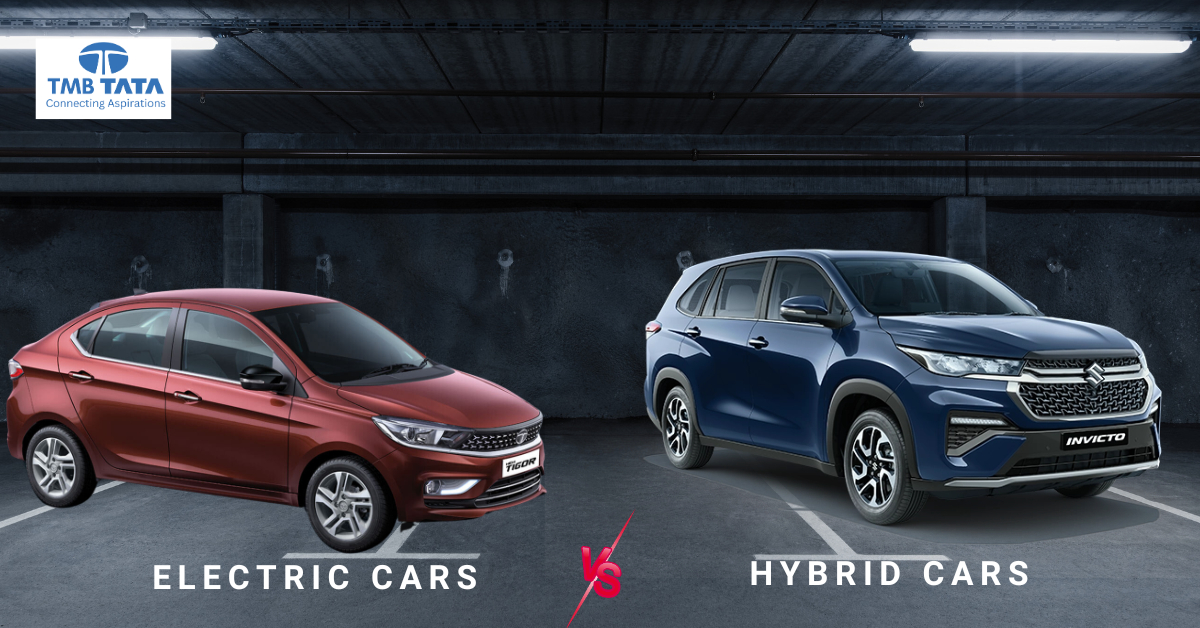Comparing Electric Cars and Hybrid Cars Pros and Cons
As the automotive industry evolves, the choice between electric cars (EVs) and hybrid cars becomes crucial for those looking to reduce their carbon footprint and save on fuel costs. Each type offers unique benefits and drawbacks. This article explores the differences, advantages, and disadvantages of electric and hybrid cars, helping you make an informed decision.
Electric Cars: Pioneering Clean Driving
Pros of Electric Cars
-
Zero Emissions: Electric cars produce no tailpipe emissions, significantly reducing air pollution and greenhouse gases.
-
Lower Operating Costs: Charging an electric car is generally cheaper than gasoline, leading to reduced overall maintenance costs.
-
Instant Torque: Electric motors deliver instant torque, providing a smooth and responsive driving experience without gear shifts.
-
Government Incentives: Many governments offer tax credits and rebates to encourage electric vehicle adoption.
-
Quiet Operation: Electric cars operate quietly, offering a serene driving experience with minimal noise pollution.
Cons of Electric Cars
-
Limited Range: Range anxiety can be a concern as electric cars typically offer a shorter driving range compared to gasoline vehicles.
-
Charging Infrastructure: Although improving, charging infrastructure is not as widespread as gas stations, which can complicate long-distance travel.
-
Long Charging Times: Charging an electric car can be time-consuming compared to refueling a gasoline vehicle, especially with standard chargers.
Hybrid Cars: The Best of Both Worlds
Pros of Hybrid Cars
-
Improved Fuel Efficiency: Hybrid cars combine a gasoline engine with an electric motor, offering better fuel efficiency and reduced emissions compared to traditional cars.
-
Extended Range: Hybrids switch between gasoline and electric power, providing a longer driving range and eliminating range anxiety.
-
Lower Emissions: While not zero-emission, hybrids emit less pollution than conventional gasoline vehicles, contributing to cleaner air.
-
Regenerative Braking: Hybrids use regenerative braking to capture energy during braking, enhancing efficiency and reducing brake wear.
-
Widely Available: Hybrids are readily available with a well-established infrastructure for maintenance and fueling.
Cons of Hybrid Cars
-
Higher Upfront Costs: Hybrids generally cost more than gasoline cars due to the additional technology and components.
-
Limited Electric Range: Plug-in hybrids offer limited electric-only range compared to pure electric vehicles, often relying on gasoline for longer trips.
-
Complexity: The dual powertrain system in hybrids adds complexity, which may require specialized maintenance.
-
Dependent on Gasoline: Despite improved efficiency, hybrids still use gasoline, contributing to fossil fuel consumption and emissions.
Choosing Between Electric and Hybrid Cars
When deciding between an electric car and a hybrid car, consider the following factors:
-
Usage Patterns: Electric cars are ideal for urban commuting and shorter trips, while hybrids offer more flexibility for longer journeys.
-
Charging Accessibility: Evaluate the availability of charging stations. Electric cars are more practical if you have easy access to charging points at home or work.
-
Environmental Impact: Electric cars have an edge in reducing emissions and environmental impact with zero tailpipe emissions.
-
Budget Considerations: Compare upfront costs, maintenance expenses, and potential savings on fuel and incentives.
Conclusion
Both electric cars and hybrid cars are significant advancements in automotive technology, offering alternatives to traditional gasoline vehicles. Your choice depends on your lifestyle, driving habits, and environmental goals. Electric cars excel in sustainability and long-term savings for city dwellers with access to charging, while hybrids provide a practical compromise with extended range and versatility.
By evaluating these pros and cons, you can make an informed decision that aligns with your preferences and values, contributing to a cleaner environment.
FAQs
Q: What is the main difference between electric cars and hybrid cars?
A: Electric cars run solely on electric motors powered by batteries, while hybrid cars combine a gasoline engine with an electric motor.
Q: Which type of car is more environmentally friendly, electric or hybrid?
A: Electric cars are more environmentally friendly as they produce zero emissions, whereas hybrids still rely partially on gasoline.
Q: Are electric cars more expensive than hybrid cars?
A: Generally, electric cars have a higher upfront cost due to battery technology, while hybrids are usually priced closer to traditional gasoline cars.
Q: Do electric cars have a longer range than hybrid cars?
A: It varies. Some electric cars have longer ranges than hybrids, but hybrids can travel longer distances overall due to their gasoline power.
Q: Which type of car is better for city driving, electric or hybrid?
A: Electric cars are typically better for city driving due to their zero emissions, quieter operation, and regenerative braking, which is ideal for stop-and-go traffic.

